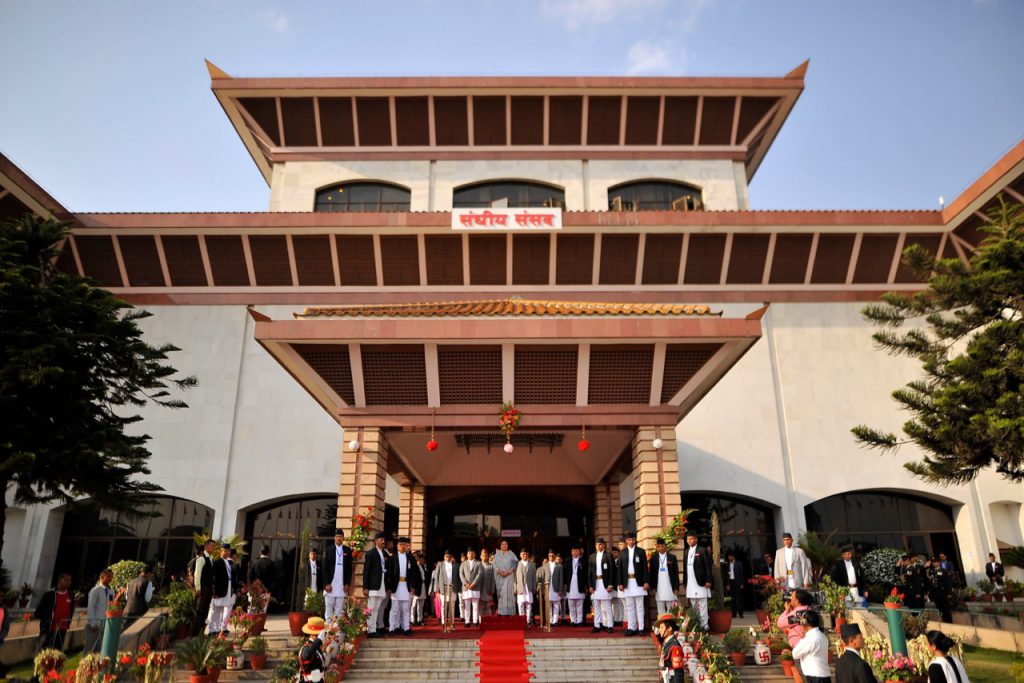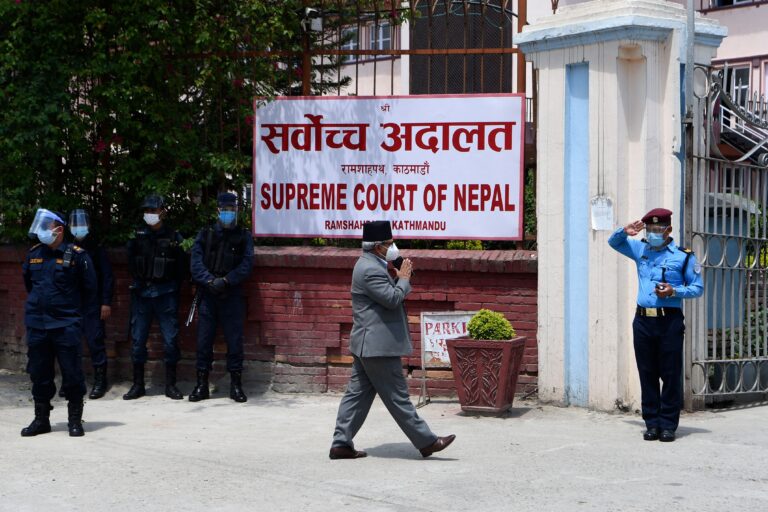Instead of providing autonomy to Nepali media, the proposed Media Council Bill in Nepal will instead establish a government organ that could curtail press freedom.
The Federation of Nepali Journalists (FNJ) is highly concerned about the “Nepal Media Council Bill” recently registered at parliament and the proposed “Mass Communication Bill”, which is expected to be registered soon.
“Both the bills have regressive provisions to control the media and curtail press freedom”, the President of FNJ Mr. Govinda Acharya said. He said that both the bills “do not abide by the international practice of press freedom as well as the fundamental values of the Constitution of Nepal, 2015.”
The FNJ called a meeting of all major media stakeholders on 10 May 2019 to discuss the bills and make decisions about further action. Alongside FNJ, the meeting was attended by the Association of Community Broadcasters (ACORAB), Broadcasting Association of Nepal (BAN), Sancharika Samuha, Online Journalists Association, Nepal Press Union, the Press Organization Nepal, Press Chautari, Progressive Journalists Association, People’s Journalists’ Organization Nepal, Revolutionary Journalists Organization Nepal, Democratic Press Network and others. The Acting chair of the Press Council Nepal and other members also attended the meeting.
The Ministry of Communication and Information Technology (MoCIT) on Wednesday had registered the “Bill to Amend and Integrate Nepal Media Council Law” at the House of Representatives, the lower house of Federal Parliament. The Press Council Nepal had put forward suggestions to the Government of Nepal for amendment of the Press Council Act, 1991 months back on the request of the Government. Most of its suggestions have not been addressed in the current bill.
The bill has such provisions which will ‘destroy the autonomy and independence of the Press Council Nepal’. “At the time, when we all the media stakeholders are asking for more autonomy for the Press Council and to develop it into a self-regulatory mechanism, the government has tried to turn it into a government organ, where the government can have all the control”, FNJ President Mr. Acharya said.
The meeting decided to undertake a strong campaign to pressure the Government of Nepal to repeal the registered bill from the parliament and put forward an amended bill in consultation with all the media organizations and stakeholders. The meeting also decided to advocate with the members of parliament to reject or amend the Bill. Similarly, the meeting also decided to demand an amendment of various laws, including the “Advertisement Act” and the “Information Technology Act”.
Following the meeting, the FNJ central committee held an emergency meeting and decided to take concrete action to engage with the government, parliamentarians and other stakeholders. The meeting participants decided to analyze the provisions of the bill and draft a suggestion to hand over to the Prime Minister, Speaker and the members of both the parliaments. They also decided that the FNJ will coordinate with international actors to call for an ‘international media mission’.
The FNJ has decided to request international organizations including the International Federation of Journalists (IFJ) and the International Freedom of Expression Exchange (IFEX) for solidarity in this campaign by the FNJ against the curtailing of press freedom through different laws by the Government of Nepal.



